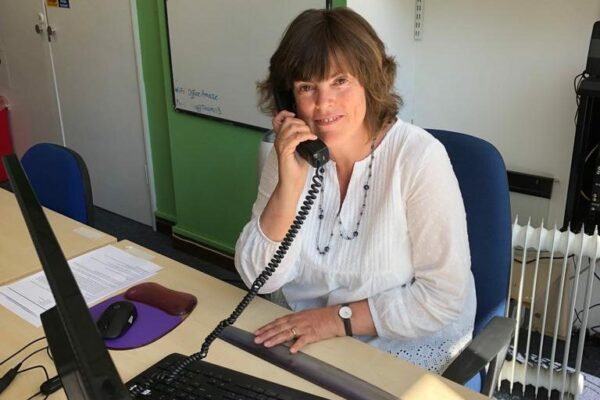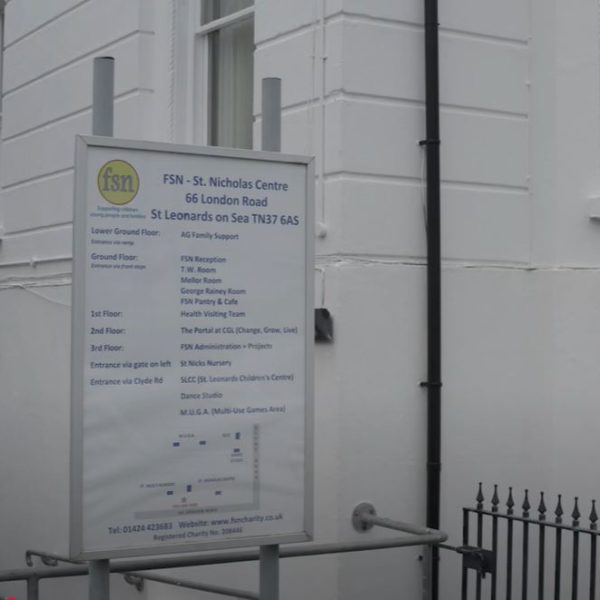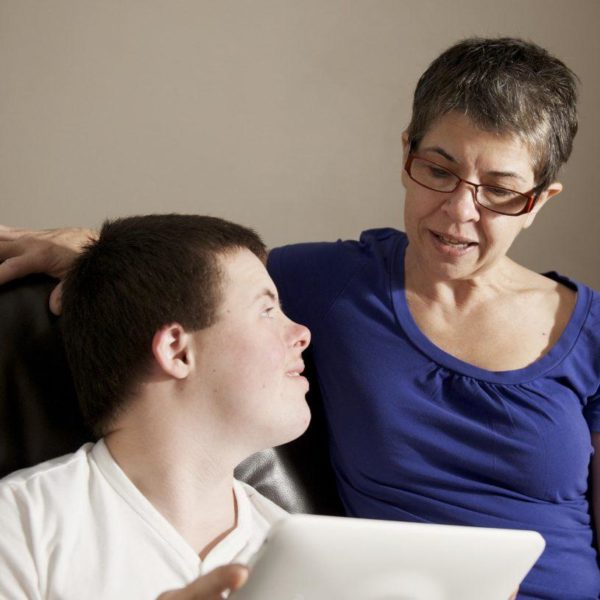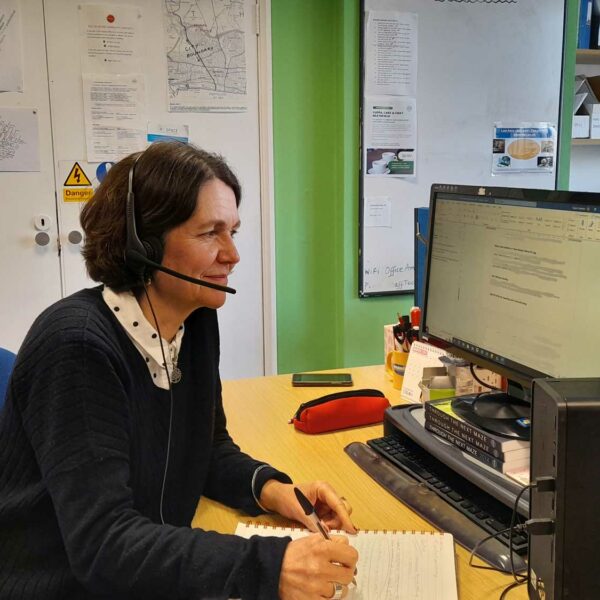Education, Health and Care (EHC) assessments and plans
If your child has been getting extra support for their special educational needs in school for a while, but doesn’t seem to be making progress, the local authority can be asked to carry out an Education, Health and Care (EHC) needs assessment. This may lead to your child getting an EHC plan, often called an EHCP.
What is an EHCP?
An EHCP is a legal document that lays out a child or young person’s special educational needs, things they would like to achieve (called outcomes) and the support they need to achieve those outcomes.
EHCPs should also describe the child or young person’s health and social care needs which relate to their special educational needs, and specify any support required for these.
Your local authority (LA) is legally responsible for providing any special educational or social care support described in an EHCP; the health service is responsible for the health care.
Does my child need an EHCP?
Most children and young people with special educational needs or disabilities (SEND) will get the support they need without an EHC plan.
Schools and pre-schools can give a significant amount of extra help through SEN support and your child does not need an EHC plan to access specialist SEND services like BHISS in Brighton and Hove or Education East Sussex SEND services, or to get special access arrangements for taking exams.
If your child is under five, you may want to try and get an EHC plan if they have severe and complex needs, if you think they should go to a special school for reception year, or if they require specialist early intervention that cannot be provided in their current nursery or childcare setting.
If your child is over five, you may want to get an EHC plan if they have been getting extra help on SEN support in school for a while and don’t seem to be making reasonable progress; if they are being excluded or are very stressed about school, or you feel they need to move to a special school or facility.
If your child’s SEND makes it impossible for them to attend school, and you do not want to educate them at home yourself, your local authority may agree to provide ‘education other than at school’ (EOTAS). In these circumstances, the EOTAS provision must be agreed via an EHC assessment and set out in an EHC plan, as the LA remains responsible for your child’s special education needs.
If you have chosen to educate your child at home (often called elective home education) you become responsible for your child’s special educational needs. Children who are ‘electively’ home educated may still have an EHC plan and the LA may occasionally fund support for their special educational needs, but it does not have a legal duty to do so.
If you are unsure whether your child needs an EHCP read our page on Getting extra support in school.
How to get an EHCP
The first step in the process is making a request to your local authority, asking them to consider carrying out an EHC needs assessment of your child.
Legally, you only need to demonstrate that you believe your child has special educational needs AND may require an EHC plan to deliver the level of support they require. In practice, most LAs will use additional criteria to decide whether to conduct an assessment so it may strengthen your initial request to include details of your child’s needs, evidence of the support that works for them and information about what else they may need. Amaze has template letters that you can use to request an assessment.
If your child attends a nursery, school or college, you should ask the setting to make the request with you as they will have experience of the evidence that could be provided. Even if they refuse to make the request with you, they would be obliged to provide further information if the LA contact them after an assessment request from you.
Requests for a young person aged 16+ should be made by the young person unless they clearly don’t have capacity to do this, although they can ask for all further correspondence to be with a parent carer. For more on decision making, see our section on Rights, voice and decision making.
The “statutory assessment” you are requesting involves getting advice from a range of professionals, you the parent carer, and the child/young person, in order to decide if an EHC plan is needed. The whole process from receiving your request until a final plan is potentially issued should take no more than 20 weeks. The LA is allowed to add in the time that schools are shut, and therefore uncontactable, so be prepared for the process to take longer if it falls over the summer holidays, for example.
All through this section we will refer to ‘the school’ but this also applies to early education settings and further education colleges. Please note that young people in higher education (University or Degree courses) are not eligible for EHC plans.
Read our SENDIASS guide to Requesting an EHC needs assessment (pdf 260kb)
Brighton & Hove parent carers can use this template letter to request an Education, Health and Care needs assessment
East Sussex parent carers can use this template letter to request an Education, Health and Care needs assessment
You can book onto a free Amaze workshop to find out more about EHCPs, SEN support in school and more
The EHC assessment process
What happens after you request an EHC assessment?
When the LA receives the request, you will be given the name of a Casework Officer (CWO) in the Brighton & Hove SEN team or an Assessment and Planning Officer (APO) in the East Sussex Assessment and Planning team who will be responsible for your child’s case. They will be the key point of contact for you. However, they do not make the decisions about whether to conduct an EHC needs assessment on your child. Decisions are made on the recommendation of an SEN panel that meets weekly. The aim of the panel is to make sure the LA makes fair and consistent decisions. Panel members may include a manager from the SEN team/ISEND, a senior educational psychologist, representatives from schools, health and social care, and, in Brighton & Hove, a parent carer.
There are strict time limits about assessment and producing EHC plans. The first of these time limits is that the LA has up to six weeks to make their decision about whether to go ahead with an assessment.
If you or your young person made the request, the LA will contact the school for information. If the school made the request with you, you will get a letter that asks for your views. You need to make sure that the LA is sent enough information at this point to make a sound decision. At this stage they will only be looking at the information sent by you and the school. The legal test here is whether “the child has or may have special educational needs” and whether “it may be necessary for special educational provision to be made for the child in accordance with an EHC plan.” So, the LA will consider whether all possible SEN support has been provided.
We explained in our Extra support in school section that schools can provide some children with up to £6000 worth of SEN support from their own budget. The school will also need to demonstrate that they have been keeping records of the support given, monitoring its impact and meeting with you at least termly to review the school plan. The panel may well turn down a request for assessment if they think the school is not giving this much help, because it could be that the child wouldn’t need an EHC plan if the school did all they should.
By the end of the six weeks the LA will send you their decision. If they decide not to assess, they will give you the reason and you will have a right of appeal. We have a section below about appeals to the First-tier Tribunal (SEND), but before doing this you should talk to your school and your CWO/APO and get advice from Amaze. Often there is room for negotiation at this point. For example, the LA may feel the school have not tried everything because the information the school gave was not clear enough. Or there may be medical evidence that the LA did not know about.
How will an EHC needs assessment be carried out?
If they do decide to assess, the LA has 10 weeks in which to carry out the assessment and either issue a draft plan or tell you they have decided not to issue one. The aim of the assessment is to identify your child’s special educational needs, identify some outcomes that will enable the child to progress in their learning and towards adult life, then work out what education, health and social care provision is needed for the child to achieve these outcomes. To make the assessment, the LA must ask for advice and information from:
- parent carer/s (or young people over 16)
- the school or other education setting
- health professionals involved with the child
- social care in some cases
- anyone else you reasonably request
Your child will also be seen by an educational psychologist as part of the assessment process.
If you have additional reports about your child, you can attach them as part of your parental advice and information to make sure they are considered. When any reports are produced for your child, you should ask the professional to record some possible outcomes that could be used in an EHC plan. However, be aware that the LA is not obliged to accept all the information contained in reports that you have privately commissioned. If there are up-to-date reports about your child, the LA should use these and not ask for new ones.
Read our SENDIASS in-depth guide to the EHC needs assessment process (pdf 270kb) .
The parent's role
The idea of EHC plans is that the parent and child or young person’s views and aspirations should be at the heart of the plan and shape the outcomes set in the plan. So, you and your child should be closely involved all through the assessment.
If your child is under 16 you have the right to be with them at all interviews, medical tests or any other test during the assessment. Sometimes a professional may wish to observe your child in the classroom, or talk to them on their own, but they should tell you that they are doing this.
You also have the right to ask your LA to get a report from anyone that is reasonable.
See our SENDIASS video on EHCPs
How can you give your views?
It is vital that you and your child are able to present your views and aspirations. Your expert knowledge of your child will include details that may be unknown to the professionals. It is also important that your child is able express their views and you should speak to school and the LA about this. Amaze can give guidance about the type of information you may wish to supply at this stage. Read our SENDIASS guide to the parental contribution to an EHCP .
There is no need for you to copy chunks from reports as professionals would have access to them and many of the outcomes will have already been placed into the EHC plan. It is a chance for you to give the details that professionals do not have.
Young people will formerly be invited to present their views, but a child of any age should participate so that they are able to flag their dreams and ambitions and to let professionals know what works for them. Your child may need support to communicate their views but it is very important that their own opinion, even if it differs from yours, is recorded! See our Involving Young People fact sheet .
During the needs assessment it is important to have regular contact with your CWO/APO so they are clear about the outcomes you want for your child and so that you are involved in decisions that need to be made.
The decision to issue an EHCP
If the local authority (LA) decides an EHCP is not needed they must write to you by week 16 after the request, explaining the reasons for their decision and your right of appeal against this decision. They should also provide written feedback about the information gathered during the assessment, including all the reports, as this can be useful for you and the school.
If the LA decides an EHC plan is required, they must send you a draft of the plan, together with copies of all the reports they have received from everyone involved. You should receive this by week 16 at the latest. Each LA has chosen the format for their EHC plan but the law sets out the sections which every plan must include. You will be sent the draft by email.
Checking the draft EHCP
When the proposed plan arrives, you have only 15 days to think about it and ask for any changes. It is very important that you make use of this opportunity to check the plan carefully. Does it describe your child accurately? Are all the outcomes appropriate for your child? Is all the support suggested in the reports mentioned in the plan? Is it clear how provision will be delivered – how often, for how long, by whom? Could any school read it and know what your child needs?
Download our in-depth SENDIASS guide to checking your draft EHC Plan (pdf 360kb)
And our SENDIASS guide to outcomes (pdf 270kb) for more detailed advice.
At this point, you have the right to request a meeting to discuss the draft plan with an LA officer. Often, parents only ask for a meeting if they have serious concerns with the plan. If you want to make minor changes you should be able to sort these out over the phone or by email. Amaze can offer guidance if you want help understanding and responding to the draft plan.
The draft plan will not refer to any school by name, as you have the right to request a particular school or type of school, to be included in the final plan. The LA must tell you where to find information about the schools and colleges that are available for your child to attend. When you return the draft, you should include the name of your preferred school although the LA may not always agree with your choice of school.
When you return your comments with the proposed plan the LA will consider them. If the changes are small, and the LA accepts them, they may just be incorporated so that the final plan can be issued. If there are requests for significant changes to be made, the LA may issue another proposed plan. You should be given 15 days again to review this amended draft plan.
By week 18, and once the proposed plan has been agreed, the LA will write the final EHC plan and send it to the school you have named. The school will need to agree that they can meet the needs of your child, based on the information contained in the EHC plan. If a local school can meet your child’s needs, then this may be the one you are allocated.
By week 20 after the original request, the LA should issue the final EHCP to you. This will name a school and the amount and arrangements for the personal budget if you opted for this.
Disagreeing with the local authority
Disagreeing with the LA about the EHC Plan
Families have the right to appeal to the Special Educational Needs and Disability Tribunal (SENDIST) about their child’s EHCP on a number of grounds including: the decision to assess, the decision to issue a plan, and the sections of the EHC Plan that describe special educational needs, special educational provision and the school placement. Tribunals have the power to require the LA to make changes to these sections of your child’s EHC plan.
If you are already appealing an education part of the EHC plan, tribunals can also recommend changes to the sections about your child’s health and social care needs and provision. Unlike decisions on the education sections, the LA or Health are not required to follow these recommendations, but they have to be able to provide a strong justification if they choose not to. See our section on EHC appeals and disputes for much more information.
Disagreeing with the LA about the delivery of support in the EHC plan
If you think that your child or young person is not getting the provision and support written in their EHCP, or that the support they need is being removed or reduced without the EHC plan being amended, you can complain.
Speak to your child’s teacher, the SENCO and the head teacher or principal about your worries. The school is obliged to deliver the provision in the EHCP but if they can’t, for any reason, they should contact the local authority (LA). You will still need to complain too, as you or your child/young person are the only people who can take legal action if necessary.
You can complain via your local council’s online form specifically for complaints about children’s services:
Or you could use a template letter to write to or email the top person at your local authority, usually the Director of Children’s Services. Get details for your director of children’s services here. You could copy in the LA’s monitoring officer, your councillor, and your LA case worker or assessment and planning officer.
Remember to keep a copy of any letter or email you send.
If you don’t get a reply within two weeks, you may wish to think about escalating the problem to the Local Government Social Care Ombudsman or by judicial review.
Annual reviews of the EHCP
Your child’s EHC plan must be reviewed by the LA every 12 months as a minimum and they usually delegate this to the school and the SENCO. The annual review is a process which asks everyone involved to write their comment on the child so that they can be discussed at an annual review meeting. Following this the LA will consider whether the EHCP needs to be changed or whether it is no longer needed. You should get at least two weeks’ notice of the meeting and you can take someone along with you to these meetings.
Your child should be actively involved in the review process in a way that suits them. Some may wish to provide some notes, a drawing or a video whilst others may wish to join the annual review meeting even if just for part of it.
The meeting is usually held at the school and the people who should be invited are:
- the school
- the LA Casework officer/ Assessment and Planning Officer
- a representative from both health and social care if they are involved with the EHC plan.
- other people involved in working with your child can be asked too.
Not everyone will come to every meeting, but they should all (including you as a parent carer) be asked for their written advice and information about the child or young person beforehand, and these reports should be sent to you two weeks before the meeting. It’s important that you have the chance to read all the reports beforehand so that you can think about what you would like to happen at the meeting. If you don’t get them in enough time you can ask to postpone the meeting.
This is not just a general review of how your child is doing – the meeting must focus on your child’s progress towards the outcomes in the EHCP. Are any changes needed in the support they get to help them achieve those outcomes? Do the outcomes themselves need updating? This is also your opportunity to state what school placement you want for your child as you may wish to request a new setting. Within two weeks of the meeting the school must send a report to the LA. You should get a copy of the school report so you can check it over to make sure it matches what was said or agreed at the meeting.
Within four weeks of the meeting, the LA must tell you about their decision:
- To continue with the existing EHC plan or
- To amend (change) the EHC plan or
- To withdraw (‘cease to maintain’) the EHC plan
If the LA decides to change the EHC plan, they must also tell you what changes they are proposing. There is a process with time limits that allows for you to comment and appeal the decision if you don’t agree. You can also appeal if you disagree with an LA decision to withdraw the plan or not to amend the plan.
It is important to realise that an EHC plan can only be changed through the annual review process. However, you may be able to call an early annual review if you believe the child’s education, health or social care needs have changed and are no longer accurately described in the EHC plan or that any of the provision in the EHC plan is no longer meeting the child or young person’s needs. Additionally, you may want to request an early annual review if the child has been excluded from school or is considered to be at risk of exclusion.
Read our SENDIASS in-depth guide to annual reviews or our shorter guide to annual reviews .
Annual reviews for transfer between phases of education
When your child is due to move from one phase of education to the next (eg pre-school to school, primary to secondary, secondary to further education) there are special rules. The annual review must happen in enough time to plan for the move. The EHC plan must be amended by the 15 February of the year the child is due to move if this is into their first school or between schools. If they are moving on to further education, the deadline is 31 March.
The amended EHC plan must name the new school or college. The aim is to allow everyone to plan for a smooth transfer. So, for a child coming to the end of primary school, the annual review in Year 5 should talk about what they will need at secondary school, so that you have time to look at the options. Then a review early in Year 6 should pull this together for the LA to complete the amended EHC plan by 15 February. This leaves plenty of time for liaison between the primary and secondary school, visits, organising staffing or equipment, etc. It also allows time for an appeal if you are unhappy, and for this to be resolved before September.
Preparing for adulthood in annual reviews
From Year 9 onwards each annual review should also focus on the preparation for adulthood and look ahead at the key areas of health, independent living, relationships and community and employment.
You won’t be expected to confirm where they might live or work as an adult, but it is useful to think of the preparations they need to start making e.g., do they need support to think about education, employment and training options or could they be supported to manage their medication independently in the future?
This is an important stage for parents and young people and we discuss transition planning in more detail in our section on becoming an adult.
Asking for a new EHCP
If you feel your child’s EHC plan needs some changes you will usually be able to address this through an annual review. But occasionally there may be circumstances when parents think their child needs a whole new EHC assessment, perhaps because they and the LA are not seeing the child’s needs in the same way.
If you or the school request re-assessment the LA have 15 days to say whether or not they agree. If they refuse you have a right of appeal. If the LA go ahead with an assessment the process and timescales are the same as for initial assessments.
If you think your child may just need a new Educational Psychologist’s report then you should request that, as a full EHC needs assessment would not be required.
If an EHC plan is ceased (perhaps because a young person has met their outcomes and is leaving school) they can request a new assessment at a later date, should they return to education or training.
Get advice from Amaze
Our SENDIASS advice team can give you one to one advice on anything to do with education and your child or young person’s special educational needs and/or disabilities (SEND).

















